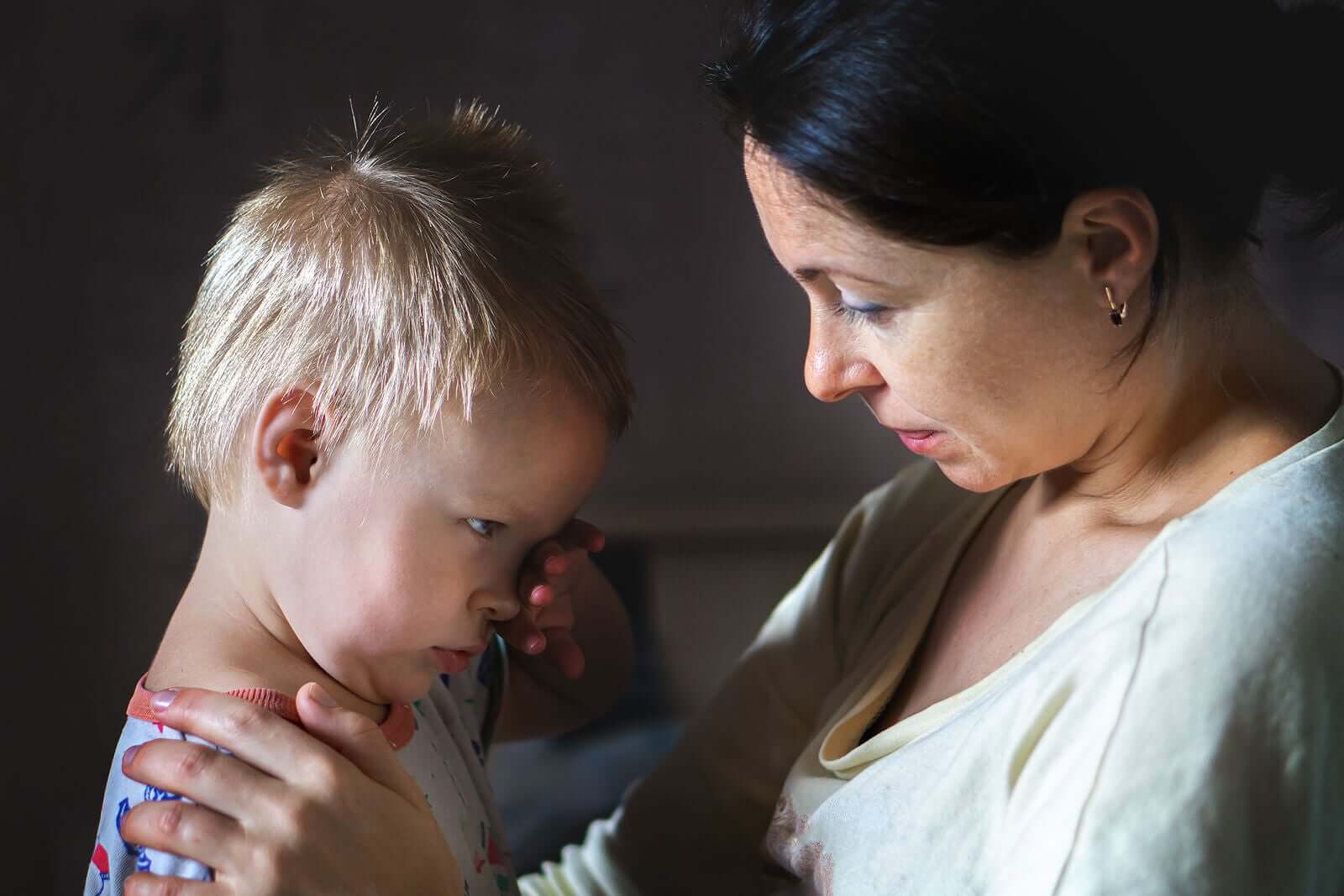Why Doesn't My Child Want Any Gifts For Christmas?

Christmas is usually one of the favorite times of the year for children. And much of their excitement has to do with the toys and gifts they receive every December 25th. So, if your child doesn’t want any gifts for Christmas, you may be asking yourself what’s going on.
You should know that there are several reasons that can lead to this happening and, in most cases, there’s no serious problem.
Nevertheless, it’s best to be alert to some signs that can guide us. It’s always important to take into account any changes in behavior or attitude in our children. That’s because they’re not always able to explain what’s happening to them openly. Often, having an adult who listens and guides them is enough.
Why doesn’t my child want any presents for Christmas?

Mood disorders
If a child doesn’t want any gifts for Christmas, they may be experiencing a mood disorder. Depression in children presents itself in the form of widespread apathy, disinterest, or a lack of enthusiasm, among other symptoms.
If that’s the case, the child may be unable to enjoy other activities that were previously enjoyable. In addition, they may present sleep alterations, changes in appetite, difficulty concentrating, irritability, and negative thoughts.
A disorder of this type isn’t likely to be the reason why your child doesn’t want any gifts for Christmas. Nevertheless, if you detect some of the above signs when analyzing your little one’s attitudes and behaviors, it’s best to see a specialist.
My child doesn’t want any gifts: they don’t know what to ask for
As the holiday season approaches, advertisements and toy catalogs bombard children. There are so many options that, sometimes, kids can feel overwhelmed by the endless possibilities. In this situation, it’s positive to encourage children to think about their favorite activities and hobbies. Then, you can guide them towards gift options that can promote their interests or skills. Focusing and reducing the number of suggestions makes it easier to make choices.
At the same time, it’s important to explain that not all gifts need to be material objects. Some children reach December with a long list of favorite toys, but others aren’t particularly interested in any of them.
In addition, many children already have everything they might need. So, perhaps they’d find it more appealing to make their gift an experience. For example, going to an escape room as a family or going to see their favorite musician. These options are usually the ones that older children prefer.
A single non-viable option: my child doesn’t want any gifts
At other times, your child may have their heart set on a specific gift, but you’ve already told them it’s not an option. Perhaps because of the cost, or because you don’t consider it appropriate for their age.
This is the case, for example, of children who want a cell phone before their parents want to let them have one. In the face of this refusal, the child may shut down and say that, if they can’t have a cell phone, then they don’t want anything.
Before giving in, remember your reasons and stick to your decision if it’s the right one. Try to explain to your child why it’s not possible for them to receive this gift and look for solutions together. Perhaps they can save up to help you purchase it. Or they may just have to wait a couple of years to get it. Express your reasons and encourage your child to choose another option, making it clear that you won’t change your mind.

What do you do if your child doesn’t want a gift for Christmas?
Many times children and adolescents who say they don’t want anything for Christmas, whether it’s because of apathy or because they don’t know how to decide, really do expect a gift. After all, giving is a way to show affection, consideration, and interest in others.
The value of these gifts lies, above all, in knowing that there are other people who appreciate us and invest their time and money in giving us something that makes us happy.
Therefore, it’s always positive to give a gift to children, even if it’s a surprise for them or they haven’t picked it out. There are many types of gifts that you can give and the main objective will always be to transmit to our children affection and involvement with their happiness.
All cited sources were thoroughly reviewed by our team to ensure their quality, reliability, currency, and validity. The bibliography of this article was considered reliable and of academic or scientific accuracy.
- Larraguibel, M. (2003). Depresión y distimia en niños y adolescentes. Boletín especial Sociedad de Psiquiatría y Neurología de la Infancia y la Adolescencia, 14, 21-4.
- Papa, Y. (2019, agosto 19). El síndrome del niño hiperregalado. Recuperado diciembre de 2020, de https://lamenteesmaravillosa.com/el-sindrome-del-nino-hiperregalado/